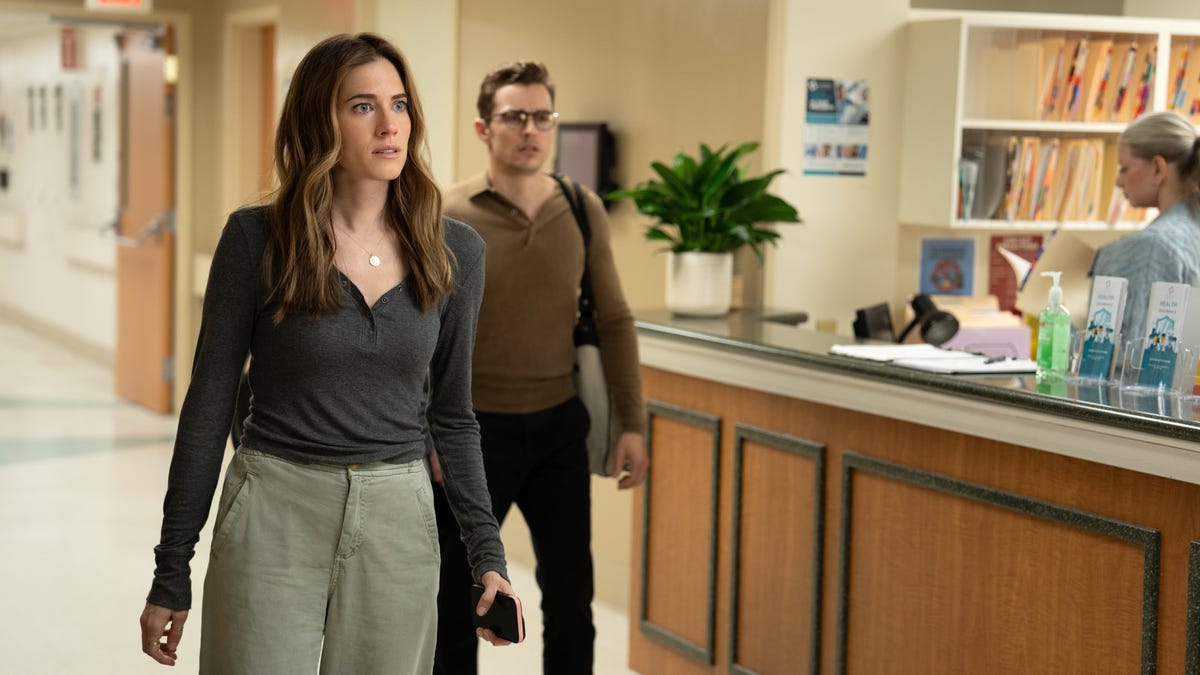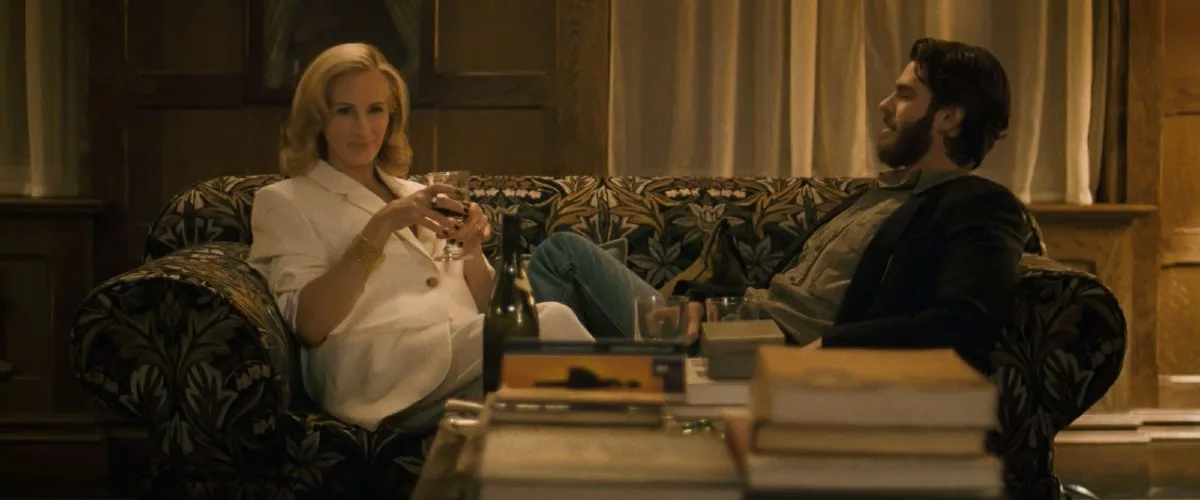Director: Aditya Sarpotdar
Writers: Niren Bhatt, Suresh Mathew, Arun Falara
Cast: Ayushmann Khurrana, Rashmika Mandanna, Nawazuddin Siddiqui, Paresh Rawal, Sathyaraj, Fasial Malik, Geeta Aggarwal, Rachit Singh
Add Zee News as a Preferred Source
Duration: 149 minutes
Rating: 4/5
Every now on then, a crossover yet original franchise movie takes everything by surprise and storm, Thamma is one of those movies, the film not only elevate the standard of whole franchise but has enough easter eggs to future instalments as well. This epic saga has everything going for itself, it is fun, wild, original, unique, relatable and above all packed with stellar acting, outstanding VFX, smashing numbers, it is something we have never seen before in mainstream Indian cinema.
The film kick-offs in this lush, mythological forest where ancient legends live and breathe — literally. But there is one cardinal rule, no one ever harm a human, and their sole purpose is to protect human race against evil forces. And one fine day is cardinal rule is broken which leads to many chaos, some centuries old and some set in present and future. Thamma is the prefect mix of folklore, fantasy, sentiment, and action into one thoroughly engaging ride.
Ayushmann Khurrana as Alok, who stars as a small-town reporter who gets into something much, much bigger than he could ever have dreamed. His character is so likable at the beginning — goofy, chatter box, inquisitive, and pure hearted. The arch of his character is something to watch out for, he goes undergoes many transformation and each one is deeper, darker, and incredibly emotional. You just feel what he’s experiencing.
Rashmika Mandanna as Tadaka, is a revelation. She’s hot when she needs to be, but the thing is, she comes off as so real and grounded. She doesn’t play the typical “horror heroine” cliche of screaming all the time or being eye candy. She has a genuine emotional center to her character, and her chemistry with Ayushmann is natural and organic.
Most of the first half goes away rather quickly establishing new characters, with back stories, and it is really smooth and engaging.
And then comes the second half, where the film goes into supersonic overdrive. Dramatic plot turns, action on a high level, major reveals, comic relief and love, but amidst of all the chaos, everything makes sense, everything has a meaning, even the dance routine has deep rooted back story, and then comes an epic showstopping fight between Ayushmann’s character Alok and Bhediya himself (yep, Varun Dhawan returns!).
Betaal Vs Bhediya, this is straight-up big-screen magic, outstanding choreography, amazing VFX, roaring music and towering performances, this is moment where you’re just glued to the screen, and do not want to miss a thing. It’s not just a faceoff, it is perfectly timed epic cinematic moment which will etched forever in fans memory.
And if this wasn’t enough, there is more coming. Thamma is loaded Diwali bonanza, You’re left with all awe and more questions — such as what is the precise relationship between Alok and Bhediya, There’s a big twist which gives you clues, but doesn’t give away everything. It’s maddeningly delicious — in a positive sense. You crave to know more.
And then there is one and only Sar Kata, making a sneaky comeback. A perfect goosebumps experience. It’s also a giveaway that all these movies are setting up to become part of one big, shared universe. Thamma is just a tasting, there is more coming, much more.
After from the leading duo, the epic saga is packed with outstanding performances by entire ensemble. Paresh Rawal is a comedy scene-stealer as he plays Ayushmann’s grumpy yet clever dad with just the right mix of wit and sarcasm. The film also marks debut of Nawazuddin Siddiqui in MHCU and he is such a seasoned performer that it feels like he has always been part of the world.. He is hilarious, witty, evil, intense, brooding, and unmistakably ambitious, qualities that makes him a formidable enemy.
Veteran actor Sathyaraj is also back as (Hand Of God) Mr Elvis, the quirky supernatural authority. And he is the pivotal point where tow mega franchise make an epic cross-over, he’s more than a comedic relief role. Die-hard fans of the universe may even glimpse one of his subtle disclosures that foreshadows a huge upcoming twist.
And then there is ever so gorgeous Nora Fatehi, her cameo is not just a mere glam flash. Her moment actually contributes to narrative substance and is directly connected to the original story which started it all, Stree. She brings emotional depth, and the makers smart adapted the item song as one more cross-over point. Nora will change entire universe. She a secret to world’s mysteries or not, or something much more complex, either way, we’re excited.
Also Read | Thamma Trailer: Ayushmann Khurrana And Rashmika Mandanna Star In Bloody Love Story This Diwali – WATCH
Apart from the poignant BGM, the album is a banger, it’s not loud numbers but serving a bigger purpose. There are no random dance-number-in-the-middle-of-the-woods nonsense, the songs are verry specific, even a dance routine is also a hint to the origin of Betaal and Rakhtbeej story.
And all of this doesn’t make you jump with joy, there is one epic faceoff between Thamma and Bhediya, a visual and action spectacle, which will leave you gasping for air.
Thamma is not just another addition to a superb franchise, it’s a genre-defying breakthrough for Indian genre films and shared universe storytelling, which is rare feist to accomplish. The film is smart, intelligent emotional, humorous, and ridiculously entertaining. Packed with exceptional performances, clever writing, and some serious world building, this movie is able to juggle big laughs, emotional moments, and high-fantasy action without any loss of momentum.
If you’re already a Stree fan, or Bhediya, or of the wider Maddock horror-universe — hold onto your seats. Thamma’s not just a good time at the cinema. It’s the start of something very, very much bigger.































